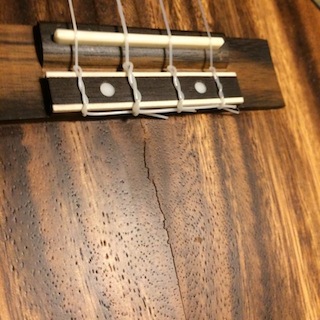JonThysell
Well-known member
Took in a solid acacia uke to get a crack beneath the bridge fixed, guy said it wasn't my fault, all Koa ukes crack eventually regardless of humidity, even in Hawaii.
AFAIK he was talking out his a**, and it was my own fault for letting the humidity drop to 16% in my apartment. I can understand that as a repair shop he's probably biased toward seeing lots of cracked ukes from people who don't even monitor humidity, but still. All Koa ukes?
Or am I totally wrong here?
AFAIK he was talking out his a**, and it was my own fault for letting the humidity drop to 16% in my apartment. I can understand that as a repair shop he's probably biased toward seeing lots of cracked ukes from people who don't even monitor humidity, but still. All Koa ukes?
Or am I totally wrong here?

